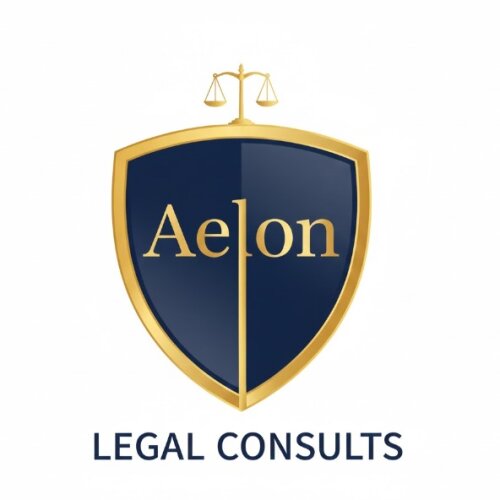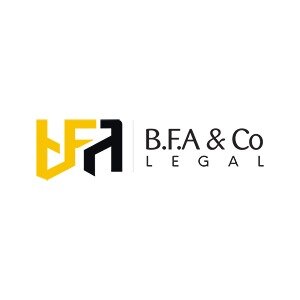Best Probate Lawyers in Nigeria
Share your needs with us, get contacted by law firms.
Free. Takes 2 min.
Or refine your search by selecting a city:
List of the best lawyers in Nigeria
Nigeria Probate Legal Questions answered by Lawyers
Browse our 1 legal question about Probate in Nigeria and read the lawyer answers, or ask your own questions for free.
- Inherited land
- My elder brother sold our late father's land without telling me. We are the only two surviving sons.We live in our father's compound. He is married with two kids. I'm not married. Should I arrest him or the buyer? how do I get justice
-
Lawyer answer by Recososa Law Firm
Hello: In a situation like yours, under Philippine law, the land left behind by your father forms part of his estate. As heirs, you and your brother have what we call co-ownership under the Civil Code of the Philippines. This...
Read full answer
About Probate Law in Nigeria
Probate law in Nigeria governs the legal process required for administering a deceased person’s estate. This includes validating and executing the last Will and Testament, identifying and appraising the estate's assets, discharging debts and taxes, and distributing the remaining assets to beneficiaries. Probate ensures that an individual's estate is handled according to their wishes after death, or, in the absence of a Will, according to the laws of intestacy in Nigeria.
Why You May Need a Lawyer
There are several situations where seeking the assistance of a lawyer specializing in probate might be beneficial:
- Contesting a Will: If there is a dispute over the validity of a Will, legal expertise is crucial.
- Complex Estates: Large or complicated estates with various types of assets, such as real estate or overseas investments, may require professional assistance.
- Debts and Claims: Legal help may be needed to settle any outstanding debts or claims against the estate.
- Intestacy Situations: When a person dies without a Will, a lawyer can help ensure the estate is distributed according to statutory laws.
- Tax Obligations: Understanding tax liabilities and ensuring compliance can be complicated and might require expert advice.
Local Laws Overview
In Nigeria, probate is governed by the Wills Act, Administration of Estates Laws, and other regional laws. Key aspects include:
- Testate and Intestate: Testate succession refers to situations where the deceased left a valid Will, while intestate succession occurs when there is no Will.
- Probate Registry: A probate grant must be obtained from the relevant state’s Probate Registry to administer a Will.
- Letters of Administration: In the absence of a Will, the court issues Letters of Administration, empowering the administrator to manage and distribute the estate.
- Inheritance Rights: These can vary significantly depending on the deceased's marriage status and the existence of a Will.
Frequently Asked Questions
What is probate?
Probate is the legal process through which a deceased person's estate is managed, including the distribution of assets and settlement of debts.
How long does the probate process take in Nigeria?
The duration can vary, but typically it can take anywhere from six months to several years, depending on the complexity of the estate and any legal challenges.
Do I need a lawyer for probate?
While it is possible to manage probate without a lawyer, legal guidance is highly recommended, especially in cases involving complex estates or disputes.
What happens if there’s no Will?
If the deceased died intestate (without a Will), the estate is distributed according to Nigerian intestacy laws, and Letters of Administration are required.
Can a Will be contested?
Yes, a Will can be contested on several grounds, including lack of testamentary capacity, undue influence, or fraud.
What is the role of the executor?
The executor is responsible for managing the estate according to the Will's terms and performing duties such as paying debts, filing taxes, and distributing assets.
How can I obtain a grant of probate?
You must apply to the probate registry of the appropriate state, submitting the required documentation and fees for consideration.
Are there taxes on inheritance?
While Nigeria does not have a specific inheritance tax, other taxes such as capital gains tax may apply on certain assets.
Can a non-resident be an executor?
Yes, a non-resident can be an executor, but they may need to appoint a local agent to act on their behalf if residing abroad.
Who inherits if there’s no Will and no next of kin?
If no heirs are available, the estate may revert to the state according to intestacy laws.
Additional Resources
For more information, you might consider the following resources:
- Probate Registries: State-level registries can provide guidance on filing applications.
- Legal Practitioners: Consulting law firms specializing in probate can offer in-depth advice.
- Ministry of Justice: This governmental body often provides resources and directives relevant to estate management.
Next Steps
If you are in need of legal assistance for probate in Nigeria, consider the following steps:
- Consultation: Arrange a meeting with a lawyer specializing in probate to assess your situation.
- Documentation: Gather all necessary documents, including the Will, death certificate, and asset records.
- Application: File the necessary paperwork with the Probate Registry and pay any requisite fees.
- Representation: Ensure you have legal representation to navigate any complexities or disputes that may arise.
Lawzana helps you find the best lawyers and law firms in Nigeria through a curated and pre-screened list of qualified legal professionals. Our platform offers rankings and detailed profiles of attorneys and law firms, allowing you to compare based on practice areas, including Probate, experience, and client feedback.
Each profile includes a description of the firm's areas of practice, client reviews, team members and partners, year of establishment, spoken languages, office locations, contact information, social media presence, and any published articles or resources. Most firms on our platform speak English and are experienced in both local and international legal matters.
Get a quote from top-rated law firms in Nigeria — quickly, securely, and without unnecessary hassle.
Disclaimer:
The information provided on this page is for general informational purposes only and does not constitute legal advice. While we strive to ensure the accuracy and relevance of the content, legal information may change over time, and interpretations of the law can vary. You should always consult with a qualified legal professional for advice specific to your situation.
We disclaim all liability for actions taken or not taken based on the content of this page. If you believe any information is incorrect or outdated, please contact us, and we will review and update it where appropriate.
Browse probate law firms by city in Nigeria
Refine your search by selecting a city.

















